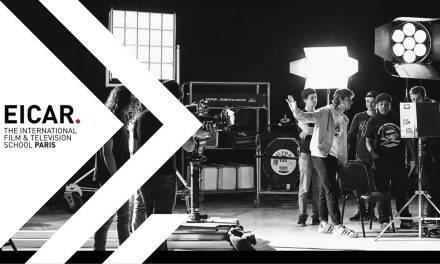The City University of New York (CUNY) inaugurates a Macromolecular Assemblies Institute (MMA) at the College of Staten Island (CSI) dedicated to biotechnology research and development on Tuesday, November 18.
The CUNY Institute, which last year received a $2.5 million grant as part of New York State’s Gen*NY*sis Program, will help expand the state’s biotechnology research industry by studying the underlying causes of disease. By studying these assemblies, researchers may gain valuable insights into the fundamentals of healing and disease, such as cellular resistance to chemotherapy, and may discover methodologies to fabricate new assemblies, such as vaccines.
One of the event’s guest speakers, Dr. Robert Kurtz, is son of Leonard Kurtz who’s company Deknatal brought the application of technological and scientific discovery to biomedical issues and developed a suture that “revolutionized” the surgical suture field by creating a product distributed by nearly every major suture supplier.
“My father and I suspected that the basic research in peptide science conducted by Fred Naider could have practical ramifications,” commented Robert Kurtz, whose company BioResearch Inc. went on to discover and develop the reagent that is used in the synthesis of Val-gan acyclovir, one of the more effective antiviral drug on the market.
Helping people regain their health and fight disease has been a key motivator in the Kurtz family, and Robert Kurtz strongly believes “that a synthesis between basic academic research and industry leads to advances that ultimately benefit humankind and improves the quality of our lives and I take great personal satisfaction from the fact that my company [was] spurred on by advice and interactions from academic scientists.”
WHO:
John Marchi, New York State Senator
Louise Mirrer, CUNY Executive Vice Chancellor for Academic Affairs
Robert J. Kurtz, M.D., President of the Kurtz Foundation
Marlene Springer, President, College of Staten Island
Ruth Stark, Director, CUNY Macromolecular Assemblies Institute
WHAT:
Inaugural Ceremony and Reception
WHEN:
Tuesday, November, 18, 2003; 1:30 p.m.
WHERE:
College of Staten Island
Center for the Arts Recital Hall (1P-120)
2800 Victory Boulevard, Staten Island, NY 10314
BACKGROUND:
The CUNY Institute for Macromolecular Assemblies was originally funded in October 2002 when Senate Majority Leader Joseph Bruno and State Senator John Marchi announced a $2.5 million grant to CSI from the state of New York as part of its Gen*NY*sis Program (Generating Employment for New York Science) initiative. Since then, CSI has matched those funds, and CUNY has established 5 new faculty lines for the college in support of the research.
The Institute will specifically study large molecules which assemble themselves into organized structures. The HIV virus, which has an outer skin made of proteins, is an example of a macromolecular assembly. A cell is also an assembly of molecules, and it is these very “assemblies” that are fundamental characteristics of all life.
As a CUNY institute, the MMA will operate on its home campus at CSI, within the university-wide consortium of colleges, and alongside metropolitan New York scientific research institutes.
According to CSI President Marlene Springer, having CSI as the home campus of this CUNY wide research initiative is formal recognition of the value of the research already underway at CSI, and will help the college expand and extend its fundamentally important research objectives.
Fred Naider, PhD, Distinguished Professor of Chemistry/Biochemistry, is one of the founding faculty members of the MMA. He was a part of the BioResearch development team that discovered and developed the new family of reagents that was named UNCAs. This family of compounds was patented world wide and still has great potential, according to Robert Kurtz.
Ruth E. Stark, PhD, Professor of Chemistry, is a veteran researcher at CSI and head of its nuclear magnetic resonance facility. She earned her doctorate in physical chemistry at the University of California, San Diego, and obtained postdoctoral training in molecular biophysics at Massachusetts Institute of Technology, Cambridge. She teaches general and physical chemistry at CSI, and has co-directed The City University of New York’s Center for Applied Biomedicine and Biotechnology.
EDITOR’S NOTE: You are invited to send a reporter and/or camera crew. If you plan to attend or send a representative, please contact Ken Bach at 718-982-2328 to make arrangements or for more information.















